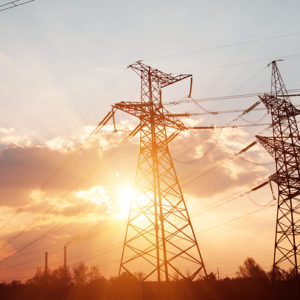Nearly 80 percent of Americans support an “all of the above” energy strategy, and 65 percent believe shuttering existing coal, natural gas or nuclear plants before renewable-fuel replacements are fully operational is a bad idea.
That’s the finding of a new Maru Public Opinion poll on behalf of the National Mining Association. It was released just weeks after the North American Energy Reliability Corp.’s December assessment finding most of the United States is now at risk of blackouts over the next decade.
“The EPA is working to hijack our nation’s energy policy through irrational and unattainable compliance measures that are forcing well-operating power plants into premature retirement,” said NMA president and CEO Rich Nolan.
That 80 percent support for the “all of the above” energy policy is up from 56 percent in May 2023, a sign that concerns about the grid’s reliability are growing among the public. And with good reason.
“While most regions should have sufficient electricity supply in normal weather, both the Northeast and Western half of the U.S. face an elevated risk of blackouts in extreme conditions,” NERC reported. “And parts of the Midwest and central South areas could see power supply shortfalls during normal peak operations.”
The EPA recently announced it would exempt gas-fired plants from a rule that would have forced them to install technology to capture 90 percent of carbon emissions by 2038. However, coal plants will be required to comply with the rule. Facilities that cannot be brought into compliance will be forced to go offline.
Nolan and others argue that this is just the latest development in the Biden administration’s war on coal, which has morphed into a war on affordable and reliable energy.
A 2023 report from The Wilson Center noted that the cost to install residential solar power systems is $3,700 per kilowatt, while a new, gas-fired plant costs $1,000 per kilowatt hour. Storage — an issue frequently noted for wind and solar power systems — is also expensive. Those costs include mining for the minerals necessary to manufacture the batteries the systems require.
The 2024 Mineral Commodity Summaries Report by the U.S. Geologic Survey found that the country imports more than half of the 49 minerals analyzed and is 100 percent import-dependent for 15 minerals. China remains the top supplier of minerals and continues to dominate global production and distribution of rare earth minerals, which are necessary for U.S. domestic energy production, manufacturing, technology and other vital sectors.
Despite the risks to U.S. security, the EPA and the administration are “putting all of our reliability eggs in one basket,” Nolan said, referring to the agency’s plan to exempt natural gas from its newest climate-inspired rule.
“Without reliable generation and enabling transmission infrastructure to replace it, experts are warning of energy rationing and blackouts, and this polling shows more and more Americans are aware of those risks, are concerned, and want the administration to change course,” Nolan added.
The Maru poll also found the economy far outweighs every other issue in the minds of Americans. While 5 percent of respondents said energy was their top issue, 34 percent said it was the economy.
Energy affordability plays a big role in the fears surrounding economic uncertainty, said Tom Pyle, president of the American Energy Alliance.
“The policies being pursued by the Biden administration and in states like California, New Jersey and New York have exposed the real vulnerabilities of intermittent energy sources like wind and solar in terms of electricity reliability,” Pyle said. “Higher energy prices and less reliable electricity erode our ability to maintain a dynamic economy as the increased costs are absorbed by nearly all products and services and as companies look elsewhere to set up shop, particularly in the manufacturing sector.
“The survey should serve as a warning to President Biden that his relentless pursuit of a Green New Deal may very well cost him another term in the White House,” Pyle said.


